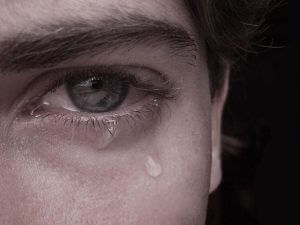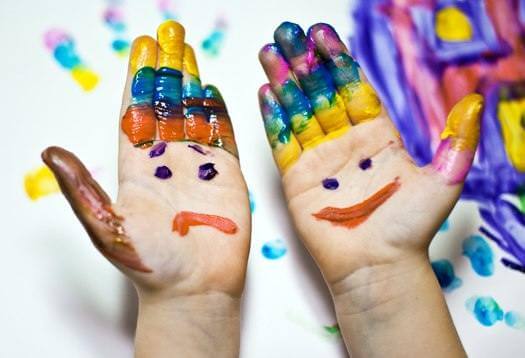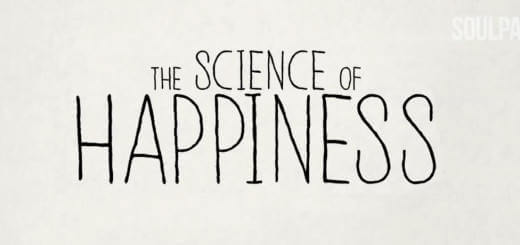Understanding Emotions: Screaming Decreases our Fear?
I hadn’t started thinking about this until a couple of months ago when we went to Movie World and I went on a bunch of rides. One of which is the Scooby Doo roller coaster. My husband and I went in expecting it to be all nice and kid-friendly, and then the darn thing turns backwards on us, as in it felt like we were on some drunken dragon and it started to go all directions. We all know that roller coasters, particularly when going down, makes our stomachs drop. That intense, “OMG it’s floating on our chest” feeling I’m sure most of us have experienced, that either makes us want more or run away in panic and nausea.
 Notice how when we feel that stomach drop and fear, we tend to scream? The weirdest thing I noticed was, as soon as I screamed, the stomach drop feeling decreased. My theory is that when roller coasters rapidly go down, our organs are moving and shifting, and the stomach drop feeling seems to represent fear more than anything else, so perhaps it’s more psychological. Although I don’t know what causes it, I have a feeling it has to do with our nerves informing us that something’s happening there and it ain’t good! Why did screaming help and why do people scream? Perhaps without even realising, everyone screamed because it also helped their intense stomach drop feeling decrease. I seriously couldn’t believe this, and started thinking more on how we respond to different emotions.
Notice how when we feel that stomach drop and fear, we tend to scream? The weirdest thing I noticed was, as soon as I screamed, the stomach drop feeling decreased. My theory is that when roller coasters rapidly go down, our organs are moving and shifting, and the stomach drop feeling seems to represent fear more than anything else, so perhaps it’s more psychological. Although I don’t know what causes it, I have a feeling it has to do with our nerves informing us that something’s happening there and it ain’t good! Why did screaming help and why do people scream? Perhaps without even realising, everyone screamed because it also helped their intense stomach drop feeling decrease. I seriously couldn’t believe this, and started thinking more on how we respond to different emotions.
*Please note: Below are purely based on my own theories and logic, and does not guarantee any scientific accuracy.
The Emotions we Feel and how we Respond
Fear
The purpose of fear is simple, it alarms us that something is dangerous and helps us stay safe because when we fear something, we want to avoid it. That’s a way for our bodies to keep us safe. For example, if you weren’t driving carefully and crashed but managed to survive, you’ll likely be more careful next time, or if you fell down from a tall place, you’re likely to develop a phobia for heights. There’s even a saying: Once bitten, twice shy. All of that is the wonderful ways which we keep ourselves safe. Otherwise, we’d just go and make the same mistakes twice and perhaps get killed.
We seem to respond to certain types of fear by screaming. Notice how when we see something really frightening, we scream without even realising? I think the roller coaster experience showed that screaming seems to help us deal with fear.
Sadness
 There are many types of sadness, but we all instinctively know that sadness is a negative emotion. We know that when bad things happen, we feel sad. For example, relationship breakups, when someone you love passes away, or when you’re treated badly by people (which can range between sadness, fear and anger). We’re born to know that sadness is bad, and perhaps the purpose of sadness is to make us do something about it. Why else would our body put us through so much sadness, unless it wanted us to do something about our situation?
There are many types of sadness, but we all instinctively know that sadness is a negative emotion. We know that when bad things happen, we feel sad. For example, relationship breakups, when someone you love passes away, or when you’re treated badly by people (which can range between sadness, fear and anger). We’re born to know that sadness is bad, and perhaps the purpose of sadness is to make us do something about it. Why else would our body put us through so much sadness, unless it wanted us to do something about our situation?
Sometimes, I feel that the mind itself may be too young and innocent to tell good from bad. Without our emotions helping us, would we be in certain danger? If we didn’t feel sad when someone treated us badly, we could easily get taken advantage of, and they could do great harm to us. Think of it the same way as when your hands get burnt, you feel physical pain which makes you instantly pull your hand back. Only then was your hand saved from being burnt. Perhaps emotions are similar in that they help keep us in the safest environment as we could, because without them – we’d probably think many bad things were good. Imagine the dangers if we were all smiling and happy when people abuse us.
Reactions to sadness seems to be mostly crying, which I remember reading articles saying that emotional tears actually help releases chemicals and toxins from the body, which can result in a buildup from too much sadness or stress.
Also, think about why babies cry, because they need something, such as food. If babies didn’t do that, there’s a chance we may not realise they’re hungry and thus, they may die of starvation. Even then, it’s a survival skill.
Happiness
 I consider happiness to be exactly the opposite of sadness. It’s our mind’s way of telling us that whatever we’re experiencing is good and we need more of it. Think about the main reasons why we feel happy. When we’re in love, when we get along with people at school or work, when we win a great amount of money, when we’re with our beloved ones, when we’re watching a show we love, when we’re working or studying at a place we truly want to be. All of these things increases our chances of survival. For example, being in love with someone (who’s hopefully nice) will ensure that we can carry on our lines. When we win a great amount of money, we don’t need to worry about living tough lives anymore. Even though many things are materialistic, we feel happy because we believe it will help us live better.
I consider happiness to be exactly the opposite of sadness. It’s our mind’s way of telling us that whatever we’re experiencing is good and we need more of it. Think about the main reasons why we feel happy. When we’re in love, when we get along with people at school or work, when we win a great amount of money, when we’re with our beloved ones, when we’re watching a show we love, when we’re working or studying at a place we truly want to be. All of these things increases our chances of survival. For example, being in love with someone (who’s hopefully nice) will ensure that we can carry on our lines. When we win a great amount of money, we don’t need to worry about living tough lives anymore. Even though many things are materialistic, we feel happy because we believe it will help us live better.
How do we react to happiness? We laugh, smile and giggle. Notice also how laughing and crying makes almost similar types of sound? Not exactly but if you look at the pattern of the sound, you can catch similarities. Doesn’t laughing and feeling happy just feel so good that you want to feel this way forever?
Does all Emotions work 100%?
No way, there are heaps of slip-ups and problems. For example, some drugs that are actually bad for us can make us happy, such as smoke or marijuana. Also, we can develop irrational phobias which keeps us from doing normal daily activities. For example, I’m emetophobic (afraid of vomiting) and because of that, I fear a lot of things, such as eating a meal I haven’t prepared myself because I fear I might be sick. When in fact, vomiting is actually a way for the body to protect itself. It’s just that the mind didn’t learn that and because of a bad childhood experience, it sees vomiting as the ultimate fear. Another problem with our emotions is that often, things like death cannot be avoided and if sadness’s purpose was for us to find or be with our loved ones, it won’t work since they are dead.




